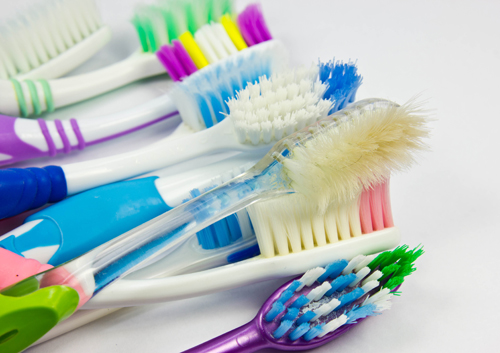December 9th, 2020

Dental problems do not always wait for normal office hours. Broken fillings or damaged teeth are common reasons for emergency treatment. Toothaches and abscesses can also require prompt attention. Dr. Chad Vanourny can provide you with the information and treatment you need to prevent the problem from becoming worse. Emergency dental care is only a phone call away, 24 hours a day, seven days a week.
Abscess
An abscess is a bacterial infection, and will normally cause pain and swelling around the affected tooth and gum area. Antibiotics are not always necessary, but you should seek treatment quickly. Left untreated, an infection can spread and cause serious complications.
Toothache
There are many reasons that you may develop a sudden toothache. The cause of the pain may be a particle of food lodged between your tooth and gum line. One of the first steps you can take is to rinse your mouth with warm water. You may also try gently flossing the area to dislodge the particle. Do not continue flossing if bleeding occurs.
Toothaches can occur from a carie — a cavity in the tooth — or from a fracture. Sensitivity to heat or cold may also cause tooth pain. You should make an appointment to ensure that a minor problem does not become serious. We may recommend acetaminophen or another pain reliever to reduce the pain before your visit.
Additional tips and treatments:
- If you have fractured a tooth, rinse the area with warm water to keep the surfaces clean. Apply a cold compress to the outside of your facial area to reduce swelling.
- A tooth that has been knocked out should be kept moist, in a clean container, until you can receive treatment.
- Do not apply aspirin directly on a damaged tooth or gum area as it can cause tissue irritation.
- If you suspect that your jaw has been broken, go to an emergency room immediately.
- If you have bitten or damaged your lips or tongue, rinse your mouth well with warm water. If bleeding continues, call us or seek other medical attention immediately.
Our team at Catawba Valley Dental Care is ready to assist you when you have an emergency dental need. When you call, please provide us with as much information as possible so we can offer recommendations that will assist you until your appointment. Do not delay; emergency treatment is available and immediate treatment is the best course of action.
November 25th, 2020

Fluoride is a mineral that plays an essential role in oral health. In fact, the significant reduction in American tooth decay in recent decades can be attributed to a greater availability of fluoride in public water supplies, toothpaste, and other resources. When it comes in contact with the teeth, fluoride helps protect the enamel from acid and plaque bacteria. In some cases, it can even reverse tooth decay in its earliest stages.
Despite the benefits of fluoride, tooth decay is still common, especially among teenagers. The Centers for Disease Control reports that cavities can be found in more than half of young teens and two-thirds of older teens over age 16. Many of those teens are deficient in fluoride, either due to a lack of public water fluoridation or the use of bottled water. So how can parents ensure their teens are getting the fluoride they need to facilitate strong, healthy teeth?
Monitor Fluoride Exposure
Dr. Chad Vanourny and our team at Catawba Valley Dental Care recommend you start by measuring your teen’s fluoride exposure. Make sure you purchase fluoridated toothpaste for your household, and find out if your tap water is fluoridated. If your teen primarily consumes bottled water, examine the bottle to determine whether fluoride has been added. The majority of bottled waters are not supplemented with fluoride, but those that are will be clearly labeled.
Fluoride Supplementation
Dr. Chad Vanourny may recommend topical fluoride treatments at routine dental exams. These treatments are painless for your teen and may help establish stronger enamel that is more resistant to plaque and tooth decay. If you have a public water supply that is non-fluoridated, we may recommend fluoride supplementation between visits. These can be administered as drops, tablets, or vitamins.
Keep in mind that fluoride is most important for children and teens under the age of 16. Be proactive about your teen’s oral health by speaking with us about your family’s fluoride needs at your next dental visit.
For more information about fluoride, or to schedule an appointment with Dr. Chad Vanourny, please give us a call at our convenient Charlotte office!
November 18th, 2020

One problem with trying to answer the question as to who benefits from Invisalign is that the simple answer is “almost everyone.” The see-through, almost invisible aligners for straightening teeth are specifically molded to fit each individual’s mouth. Unlike conventional braces, they can be removed when eating and when cleaning the teeth. Because they use less force in straightening teeth than metal braces, the risk of harm to teeth is lessened.
Benefits to adults
Traditional braces are associated with children and teenagers. Many adults want to have their teeth straightened but cannot decide which is worse: having crooked teeth or wearing metal braces. They also worry about having to change their diet by not being able to eat the foods they normally enjoy.
If you are an adult considering braces, our team at Catawba Valley Dental Care will tell you Invisalign aligners will give you the best of all worlds. Your teeth will be straightened with virtually invisible braces. You can remove your aligners when you eat so you can enjoy any food you normally would consume. You do not have to worry about embarrassing yourself by getting food stuck in your braces. You simply clean your teeth normally after eating and replace your aligners. If there is a special occasion during which you do not want to have any braces at all, you can remove the aligners for a few hours without causing any damage.
Benefits to teenagers
Dr. Chad Vanourny and our team know that teenagers are often involved in contact sports or gymnastics. Others find that having metal in their mouth interferes with their ability to play a musical instrument. Traditional metal braces contain wires and brackets that can cause damage to the mouth and gums; this is not a risk with Invisalign aligners.
For sports that require players to wear mouthguards, the expense of specially constructed mouthguards to fit over braces is avoided. The aligners can be removed during sports activity, and a normal mouthguard is worn. Teenagers who play musical instruments simply remove the aligners when practicing or playing in the band or orchestra.
Teenagers often feel they are too busy to spend time and trouble flossing teeth between the wires and brackets of traditional braces. Since the Invisalign aligners are removable, brushing and flossing are simpler and more likely to be performed.
For more information about Invisalign or Invisalign Teen, or to schedule an initial consultation with Dr. Chad Vanourny, please give us a call at our convenient Charlotte office!
November 11th, 2020

Dr. Chad Vanourny and our staff recommend that you replace your worn-out, germy toothbrush with a new one every three months. But most people either forget or resist getting rid of something that is still “working.”
Maybe if they had a few ideas for putting that old toothbrush to good use, more people would take our advice? To encourage good oral practices, we offer these ten fun things you can do with your used toothbrush:
1. Let your five-year-old budding Da Vinci create a masterpiece with some paint and your old toothbrush.
2. Scrub oily areas on your face with your toothbrush. The bristles are perfect for removing embedded dirt and oil that clogs pores.
3. Pamper your hamster by brushing his fur with an old toothbrush.
4. Dab a bit of Vaseline on the bristles and comb your eyelashes: instant glamour! Got dry, flaky lips? Slough away by using a toothbrush on your lips.
5. Remove the bristles: instant small plant stakes!
6. Old toothbrushes are great for spot-cleaning just about anything.
7. When nobody is around to scratch an unreachable itch on your back, turn that old toothbrush into your personal backscratcher.
8. Is your dog’s breath so bad that all your houseplants have died? Try brushing his teeth with your old toothbrush so that his kisses (and breath) are more tolerable.
9. Give your fish the cleanest tank in the neighborhood by scrubbing it with your old toothbrush.
10. Did you notice a few gray hairs sprouting from your hairline this morning? Old toothbrushes were made for touch-up dye jobs; works for dyeing your eyebrows, too!





 Website Powered by Sesame 24-7™
Website Powered by Sesame 24-7™